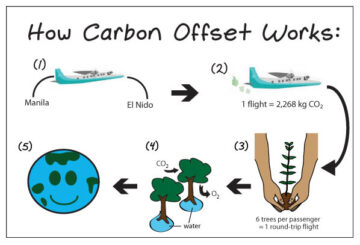
The word ‘recycle’ is no longer a stranger to everyone. Particularly now that society is becoming more aware and mindful of the environment and how the continuous production of waste affects it. In general, recycling means to process or repurpose materials instead of disposing of them and sending them to landfills. It’s one of the best practices that help preserve nature.
There are many things you can recycle, and one of them is organic waste. These are wastes that originate from living sources like plants and animals. Additionally, organic waste also includes waste products and residues considered as biodegradable, as they can be broken down into simpler organic molecules. These are most commonly found in households and agricultural industries.
If you are planning on organic recycling soon, you can check out this company in the Midwest to help you get started. Furthermore, this article will outline things to consider about organic waste management every beginner will be glad to know.
1. Identify What You Can And Can’t Recycle
This first point may seem self-explanatory, but the truth is not everyone has an overall idea as to what you can and can’t recycle. When it comes to organic-biodegradable waste, thereare those which are best sent to landfills instead of being recycled. For instance, they can cause a health and safety hazard to the community.
Along that line, some of the most common types of organic wastes and residues you can recycle include:
• Municipal solid wastes such as grass clippings and food scraps
• Food wastes like peelings, leaves, twigs, and sludges
• Animal wastes such as cattle manure.
2. Get To Know The Different Methods Of Organic Recycling
There are so many different modes of organic recycling, andgetting to know what those are can certainly help you follow through the process better. That’s because you won’t have to feel limited to what you know and think of as the best ways to recycle organic waste.
To name a few, here are some of the methods of organic recycling:
• Composting
One of the easiest ways to observe organic recycling isthrough composting. This method refers to the process of decomposing organic material and wastes, which can then be used as natural fertilizers.
If you don’t have a compost bin at the moment, then it’s definitely time for you to start having one. Don’t chuck down food waste and scraps to your bin when you can start composting instead. You can then use the composted material as organic fertilizer for your garden. That way, you don’t have to buy one anymore.
• Animal feeds
Aside from composting, one of the common methods of organic recycling is animal feeds. This method refers to feeding food wastes and kitchen residues to farm animals.
Aside from being able to practice proper recycling, you’d also get help out farmers since they won’t need to buy feeds for their animals.
• Rendering
This organic recycling method refers to exposing the fatty tissues, bones, and animal carcass to high temperatures and then further pressurized to destroy any pathogens.
The goal is to convert waste animal tissues into feed protein.
• Anaerobic digestion
One of the ways you can practice organic recycling is by donating kitchen residues and food wastes for anaerobic digestion. This method uses a sealed container called a reactor, which aims to convert different types of organic wastes into biogas with the help of anaerobic microorganisms.
Organic Waste Management And The Community
While it is true that recycling starts at home, it can be a great idea to share this practice with the community. You can start bymotivating your inner circles, such as your family or network of friends and colleagues, and your neighbors
Within your community, you can start by having a container where they can throw household organic wastes. To ensure that you are communicating your goal properly, you can also add infographics that can better guide them in the process.
Final Thoughts
When you practice organic recycling, you’re doing the environment a big favor. It’s not just non-biodegradable waste that’s piling up in landfills. A lot of household organic wastesend up in landfills as well. Many of those could’ve still had new life, and you can aid in making that happen thru organic recycling.
The guide above can help you make your organic recycling program as effective as it should be. Now all left to do is to start.
Source: https://usgreentechnology.com/a-beginners-guide-to-organic-recycling/
- About
- All
- animals
- article
- auto
- being
- BEST
- best practices
- buy
- Cause
- Common
- community
- Container
- continuous
- destroy
- different
- down
- Effective
- Environment
- First
- follow
- food
- General
- great
- Green
- guide
- having
- Health
- help
- here
- Home
- household
- How
- HTTPS
- idea
- industries
- Initiative
- IT
- join
- Limited
- Line
- Making
- materials
- more
- most
- municipal
- Nature
- network
- People
- planning
- plants
- process
- Production
- Program
- Protein
- recycling
- Safety
- Share
- So
- start
- started
- time
- tissues
- What










